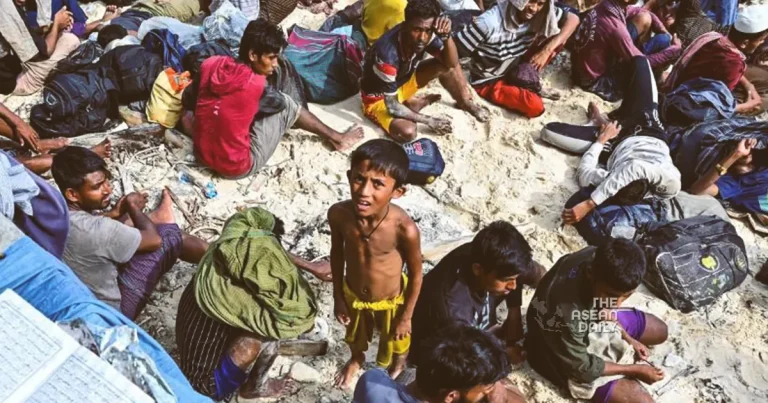22-11-2023 (JAKARTA) Over 200 Rohingya refugees find themselves stranded on the beaches of the remote Indonesian island of Sabang as locals resist their attempts to return to sea. The refugees, part of a group of over 1,000 that landed in Aceh province in the last week, face rejection from the local community. Their desperate journey began in Bangladesh, and after 15 days at sea, their boat’s engine was damaged, leaving them marooned off Sabang.
The latest arrivals, including 72 men, 91 women, and 56 children, landed in Sabang city, Aceh province, but faced opposition from locals threatening to push them back to sea. Authorities intervened, and a UN refugee agency (UNHCR) spokesperson stated that they were later relocated by ferry to a temporary shelter in Lhokseumawe, one of Aceh’s major cities.
“The situation in the field now is not good. The rejection virus has been spread to all people,” said Faisal Rahman, a UN refugee agency protection associate, highlighting the challenges and reluctance faced by Rohingya refugees.
Local authorities, in coordination with UNHCR, arranged the relocation, providing the refugees with food and drink upon their arrival. However, this incident reflects a trend, with Acehnese locals attempting to push Rohingya boats back to sea three times in the past week.
Aceh has historically been sympathetic to the Rohingya cause, but the recent influx has tested the patience of locals who claim that Rohingya refugees consume scarce resources and occasionally clash with the community. The refugees were observed on the beach surrounded by a yellow cordon and security officers.
The UNHCR appealed to Sabang’s mayor for overnight shelter for the refugees, emphasizing the urgent need for humanitarian assistance. While a delay was negotiated to prevent the immediate return of refugees to the sea, the local community demanded their relocation.
The Rohingya, a mostly Muslim ethnic minority from Myanmar, have faced persecution for years, leading to a mass exodus. Indonesia, not a signatory to the UN Refugee Convention, argues it is not obliged to accept refugees from Myanmar, citing closed borders by neighboring countries. Human rights groups urge Indonesia to fulfill obligations under international conventions, especially regarding the safety of those at sea.
This unfolding crisis has prompted calls for urgent international intervention to address the emergency and humanitarian aspects of the Rohingya’s plight. With over a million Rohingya having fled Myanmar since the 1990s, the situation in Sabang highlights the ongoing challenges faced by refugees seeking safety and stability.




